Small Turbo Engines Don't Deliver on Fuel Economy Promises: Consumer Reports

Why would automakers like Honda and Toyota, known for their fuel efficient vehicles, not have already made the switch to smaller-displacement turbocharged engines? The answer, surprisingly, is fuel economy.
While companies like Ford and Hyundai are seen to be on the leading edge of this new green driving revolution, according to a recent test by Consumer Reports the claimed mileage numbers of these small turbo engines don’t stand up to real world resting.
The consumer publication recently tested 11 new vehicles and found that, with the rare exception, “the turbocharged cars have slower acceleration and no better fuel economy than the models with bigger, conventional engines.”
Conversely, these engines are touted to deliver the power of a larger engine with the fuel economy of a smaller one.
In particular, Consumer Reports highlights the 2013 Ford Fusion, which is available with a 1.6-liter turbocharged 4-cylinder which is supposed to deliver 28 mpg, though only managed 25 mpg. That’s not a bad number, but is worse than its redesigned competitors, including the Honda Accord, Toyota Camry and Nissan Altima, all of which use larger non-turbo 4-cylinder engines. Adding insult to injury, in CR’s acceleration tests, the Fusion was also the slowest to 60 mph.
Likewise, the 2.0-liter turbocharged Fusion failed to match up to V6 rivals in both fuel economy and acceleration with a real world 22 mpg and a 7.4 second 0-60 time, compared to the Camry and Accord, which both got 25 mpg, the former hitting 60 mph in 6.4 seconds while the latter achieved the sprint in just 6.3 seconds.
Also tested was the Chevrolet Cruze, with both a 1.8-liter 4-cylinder and a turbocharged 1.4-liter 4-cylinder. The turbocharged engine achieved identical fuel economy of 26 mpg, while besting the non-turbo car to 60 mph by 0.7 seconds for a still-slow 9.8 seconds.
On the plus-side, turbocharged engines do feel better on the “butt dyno”, with better mid-range power for daily driving, meaning they actually feel more responsive (and therefore faster) than hey actually are. The feeling is misleading, however, with all but one of the 1.4-liter and 1.6-liter turbocharged engines tested delivering slower mid-range acceleration than their non-turbo counterparts.
Where the exception to this rule can be found is with the German automakers. In CR’s testing they found that in cars like the BMW X3, the turbocharged 4-cylinder option was slightly more fuel efficient though and in cars like the 328i offered solid fuel economy and efficiency.
See the full list of data courtesy Consumer Reports below:
| Model | Engine | 0-60 mph | EPA mpg | CR mpg |
| Ford Fusion | 1.6L Turbo 4 | 8.9 | 28 | 25 |
| Hyundai Sonata | 2.4L Four | 8.4 | 26 | 27 |
| Kia Optima | 2.4L Four | 8.6 | 27 | 25 |
| Toyota Camry | 2.4L Four | 7.7 | 28 | 27 |
| Honda Accord | 2.4L Four | 8.2 | 30 | 30 |
| Nissan Altima | 2.4L Four | 8.2 | 27 | 31 |
| Ford Fusion | 2.0L Turbo 4 | 7.4 | 26 | 22 |
| Hyundai Sonata | 2.0L Turbo 4 | 6.6 | 26 | 25 |
| Kia Optima | 2.0L Turbo 4 | 6.6 | 26 | 24 |
| Toyota Camry | 3.5L V6 | 6.4 | 25 | 26 |
| Honda Accord | 3.5L V6 | 6.3 | 25 | 26 |
| Nissan Altima | 3.5L V6 | 6.3 | 23 | 24 |
| Chevrolet Cruze | 1.4L Turbo 4 | 9.8 | 28 | 26 |
| Chevrolet Cruze | 1.8L Four | 10.5 | 27 | 26 |
| Dodge Dart | 1.4L Turbo 4 | 8.6 | 31 | 29 |
| Dodge Dart | 2.0L Four | 11.0 | 27 | 27 |
| Ford Escape | 1.6L Turbo 4 | 9.9 | 25 | 22 |
| Honda CR-V | 2.4L Four | 9.2 | 25 | 23 |
| Kia Sportage | 2.4L Four | 10.3 | 23 | 22 |
| Toyota RAV4 | 2.5L Four (2012) | 10.0 | 24 | 23 |
| Ford Escape | 2.0L Turbo 4 | 8.2 | 24 | 22 |
| Kia Sportage | 2.0L Turbo 4 | 7.1 | 22 | 21 |
| Toyota RAV4 | 3.5L V6 (2012) | 6.7 | 22 | 22 |
| BMW X3 | 2.0L Turbo 4 | 7.3 | 24 | 23 |
| BMW X3 | 3.0L Six | 7.2 | 21 | 22 |
| Ford F-150 | 3.5 V6 Turbo | 7.7 | 17 | 15 |
| Ford F-150 | 5.0L V8 | 7.9 | 16 | 15 |

With AutoGuide from its launch, Colum previously acted as Editor-in-Chief of Modified Luxury & Exotics magazine where he became a certifiable car snob driving supercars like the Koenigsegg CCX and racing down the autobahn in anything over 500 hp. He has won numerous automotive journalism awards including the Best Video Journalism Award in 2014 and 2015 from the Automotive Journalists Association of Canada (AJAC). Colum founded Geared Content Studios, VerticalScope's in-house branded content division and works to find ways to integrate brands organically into content.
More by Colum Wood



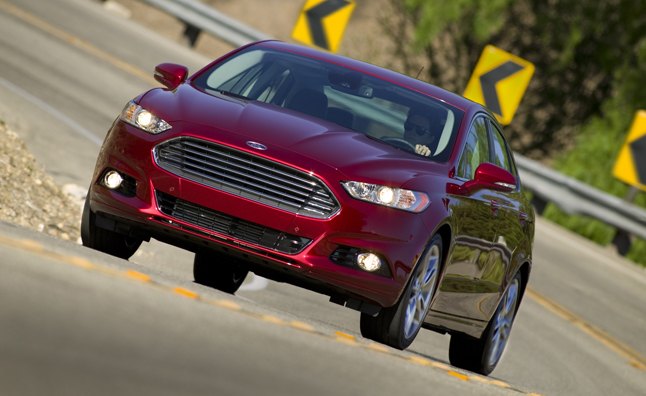
















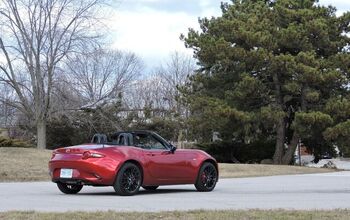
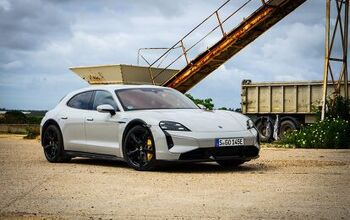
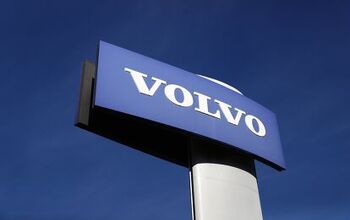


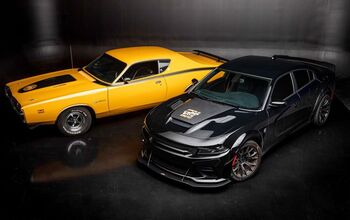


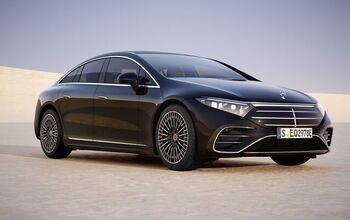
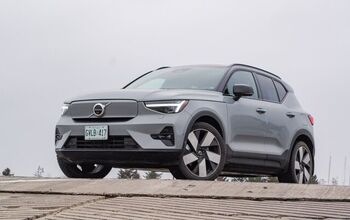

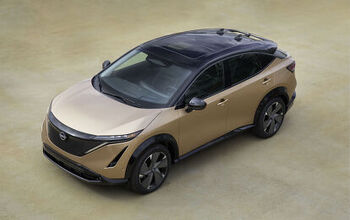
Comments
Join the conversation
Clearly...Nobody cares what Consumer Reports says. - They hated the Honda Civic..it became #1. - They hated the Prius c...it's #3 in hybrid sales. - They hated MyFordTouch....it's the #1 chosen option for actual consumers. - Now they hate Ford's 1.6 Ecoboost engine...and put together a distorted, unscientific comparison trying convince others to hate the 1.6 Ecoboost too. But consumers are smarter than that. Which is why it's the #1 chosen engine choice for Fusion, and loved by consumers based on J.D. Power Surveys. It's clear that CR makes their claims just for marketing purposes, to get a headline. No one would know they existed unless they attacked an automobile manufacturer and got a headline on websites like this. But wherever they get a headline, the response from the public is overwhelmingly negative against CR. They have zero consumer confidence. CR is just out of control and serve no benefit to the consumer. Just confusion. I think it's time for consumers to have an opportunity to rate Consumer Reports.
none and i mean none of this info accurate.